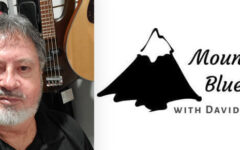In the continuing fight over royalty rates for internet broadcasters, the Copyright Royalty Board (CRB) is now coming under legal assault as the webcasters begin to fight back against what many see as an unwise ruling. The CRB recently changed the way royalty fees are calculated for internet broadcasters, resulting in greatly increased royalty fees. You can read previous posts here, here, here and here.
Now the webcasters are preparing for legal action. Both National Public Radio (NPR) and the Corporation for Public Broadcasting (CPB) have sent their lawyers to D.C. to prepare for a legal battle. The broadcasters will soon be joined by Pandora and, most likely, other commercial broadcasters.
NPR station WXPN General Manager Roger LaMay has been quoted as saying that the ruling serves as a dis-incentive and would cause cutbacks in service from internet broadcasters.
If this were to go into effect it’s going to have public radio stations looking for ways to cut back what we do, as opposed to expanding. Now, there is significant dis-incentive when you’re talking about services that are committed to public service.
LaMay went on to say that independent artists are the ones who will suffer the most from this ruling as they aren’t getting played that much on terrestrial radio so internet broadcasts serve as an outlet for their music.
CNNMoney.com reports today that NPR will be filing a petition with the CRB asking them to reconsider the rate increase, on Friday of this week. Failing that, NPR has vowed legal action.
Adam Jaffe, dean of arts and sciences at Brandeis University thinks the industry is trying to collect the wrong type or royalties from webcasters.
The question is what is the appropriate standard for what should be paid. The RIAA (Recording Industry Association of America) and the record companies basically want to make the argument that this Web-based streaming is like selling CDs or downloads of MP3 files and they should be compensated at the same rate. I think that’s the wrong way to look at it.
I agree with him. For all intents and purposes, they are attempting to exact a mechanical royalty for “webplay” of songs. Royalties that would amount to over $2 billion annually according to BetaNews.com.
That calculation is accompanied by some other interesting statistics. For instance, in comparing internet radio to terrestrial radio, BetaNews found that for 2006 terrestrial radio had almost 5 times as many listeners as internet radio, but paid only $437.5 million in royalties. These royalties were paid to the PROs (internet broadcasters pay these royalties as well). Regular radio is not subject to the per track/per listener royalty imposed on internet radio by the recent CRB decision.
BetaNews also did calculations of cost per listener, again, comparing internet radio to terrestrial radio. Here’s what they found.
On a per-listener scale, broadcast radio stations paid $1.56 per listener on average during 2006; and in 2010, that figure rises to $1.94 per listener. BetaNews estimates that Internet radio sites, by contrast, will pay $8.91 per listener for 2006, rising to $15.59 per listener in 2008 and staying flat beyond that time.
Thus an Internet radio music provider is likely to pay in royalties almost ten times the amount for each of its listeners throughout the year, than the terrestrial broadcaster.
“What happens to all these royalties?” you may ask.
SoundExchange collects and then distributes these enormous sums to the labels, artists, and sidemen. Many predict a drastic decline in internet broadcasting that could include most smaller webcasters closing up shop. That of course would decrease the total royalty figure collected for distribution by SoundExchange.
Another side effect that I’ve not seen mentioned is that with the increase in royalties being paid to artists and sidemen, it seems likely that the labels would change the way they conduct business with these people. It seems entirely possible to me, that labels would attempt to cease payment to sidemen for session work. This move would be made on the grounds that the musician will be paid on the back end via SoundExchange. In the least the label may offer the players a choice between up-front payment and royalties, with the royalty rights being signed over to the label should the musician chose a cash payment. That’s purely my prediction, but it seems to me a course of action the labels are likely to consider.







